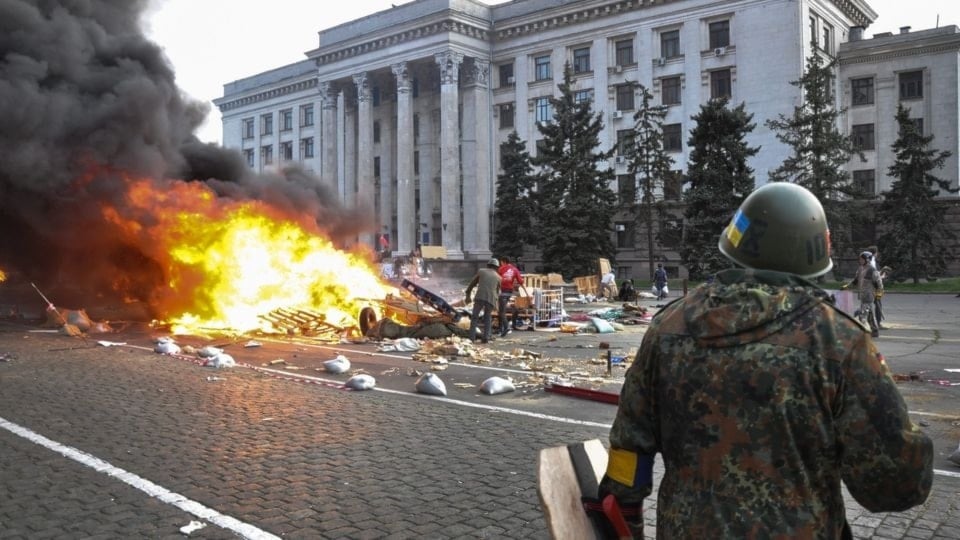Top European court finds Ukraine guilty for Odessa Massacre
The ECHR has concluded that the Ukrainian authorities failed to prevent the outbreak of violence, as well as provide timely aid to victims trapped in the fire.
-

Images from the Odessa Massacre on May 2, 2014 (Social Media)
Europe's top human rights court found Ukraine guilty for failing to prevent the outbreak of violence and clashes in the Odessa Trade Unions House, which led to the Odessa Massacre.
In November 2013, protests were ignited in Ukraine against the government's decision to suspend a cooperation agreement with the European Union and develop ties with Russia instead. Demonstrations rapidly transcended into violent anti-establishment protests against alleged government corruption. Clashes erupted between Ukrainian forces and demonstrators, killing at least 100 people.
In February 2014, protests turned into a coup that ousted former Ukrainian President Viktor Yanukovych, leading to the estrangement of the eastern Donbass region and the subsequent military campaign launched against it by the new government in Kiev.
Clashes reached peak fatality on May 2, 2014, when Ukrainian nationalists locked pro-Russian protesters in the Odessa Trade Unions House and set it on fire.
On Thursday, the European Court of Human Rights (ECHR) ruled that Ukrainian authorities had not taken adequate measures to prevent or stop the violence in Odessa and had failed to "ensure timely rescue measures for those trapped in the fire."
The unanimous decision also criticized officials for their inability to "institute and conduct an effective investigation into the events," echoing concerns previously raised by the UN Human Rights Monitoring Mission in Ukraine.
The ruling was issued in response to seven applications submitted by 28 individuals, including 25 relatives of the victims and three survivors.
The court also ordered compensation to the applicants featured in the case.
Moreover, the ECHR claimed that Russian-led disinformation and "propaganda" campaigns not only contributed to the violence in Odesa but were later exploited to advance Russia’s interests.
"Distortion of the events in Odesa had eventually become a tool of Russian propaganda in respect of the war waged by the Russian Federation against Ukraine since February 2022," the ruling stated before finding that "enhanced transparency in the related investigative work by the Ukrainian authorities might have helped to prevent or counteract that propaganda effectively."
Read more: Odessa Massacre investigator reveals real death toll a decade later

 2 Min Read
2 Min Read











